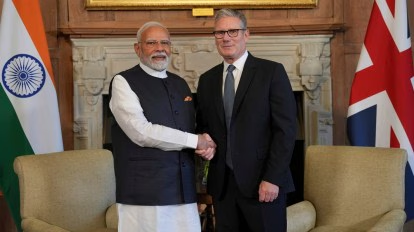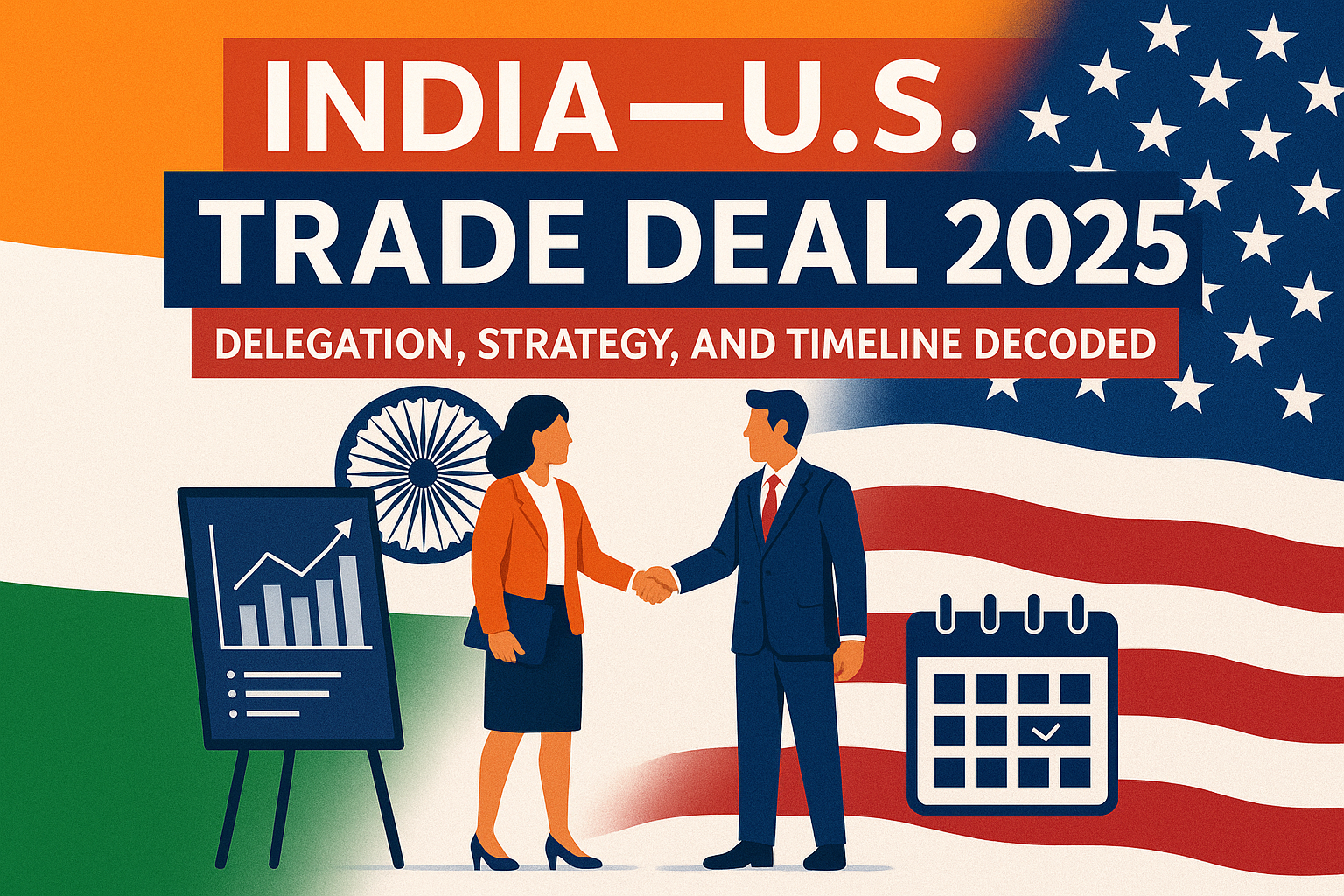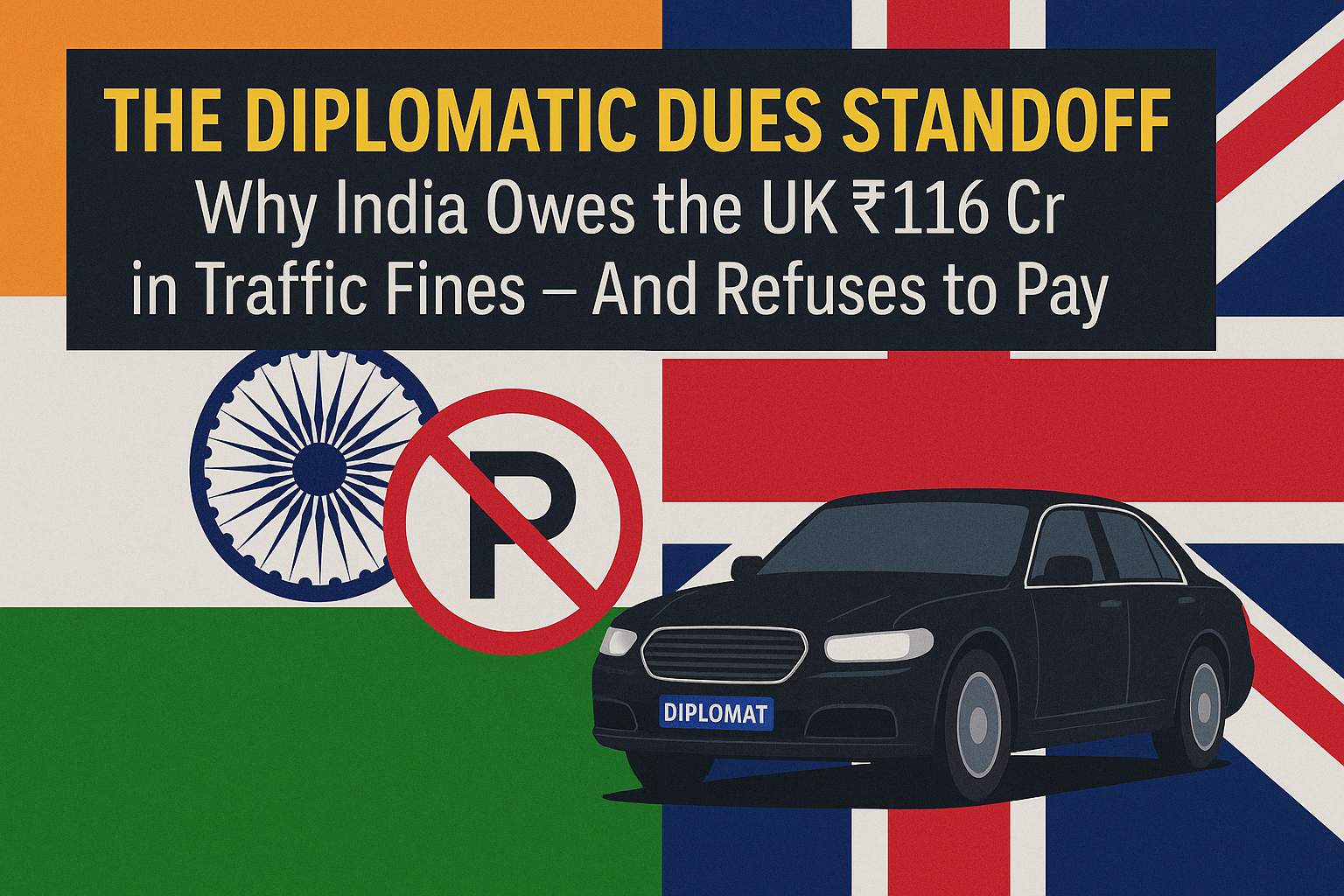India-UK Free Trade Agreement 2025: A Landmark Deal Redefining Bilateral Economic Ties
The much-anticipated India-UK Free Trade Agreement (FTA), signed in July 2025, marks a defining moment in the economic diplomacy between the two nations. After more than three years of negotiations, this historic agreement is poised to reshape trade dynamics, spur investment, and deepen strategic cooperation across key sectors.
How It All Started
| Timeline | Details |
|---|---|
| January 2022 | Formal negotiations begin |
| 2022–2025 | 15 rounds of negotiations held |
| July 2025 | FTA officially signed at Chequers, UK |
- Negotiated through 4 UK Prime Ministers
- Seen as UK’s largest post-Brexit trade deal
Economic Impact at a Glance
| Metric | Value |
|---|---|
| Estimated Trade Boost | $35 billion annually |
| UK Jobs Expected | 2,000+ |
| Indian Export Growth (Agri) | 20%+ over 3 years |
Major Tariff Reductions
India's Concessions on UK Imports:
- Average tariffs reduced from 15% to 3%
- Key sectors:
- Soft drinks
- Cosmetics
- Medical devices
- Automobiles
- Scotch whisky (150% → 75% → 40%)
UK’s Concessions on Indian Imports:
- 99% of Indian goods to get duty-free or reduced access
- Labour-intensive exports boosted:
- Leather, textiles, footwear
- Engineering goods, fertilizers
- Chemicals, petrochemicals
Auto & EV Sector Highlights
| Detail | India | UK |
|---|---|---|
| EV Duty Reduction | 100% → 10% over 10 years | Yes |
| Auto Components | Included in FTA | Yes |
| UK Car Exports | Quota-based | Gradual duty-free access |
| Notable beneficiaries: Jaguar Land Rover, Indian auto parts exporters |
Financial Services and Investment Access
- Binding investment caps secured for financial services
- UK firms like Prudential already expanding in India
- Focus on:
- Green finance
- Asset management
- Infrastructure funding
Strategic Cooperation: Vision 2035
Joint Goals:
- Defense collaboration (AI, cybersecurity, aerospace)
- Innovation in health & climate tech
- Support in extradition of economic offenders
Policy Vision:
- Long-term cooperation beyond trade
- Regular bilateral reviews
Human Mobility & Social Security
| Provision | Impact |
|---|---|
| No new visa quotas | — |
| 3-year tax/social security waiver | Yes for short-term professionals |
| Reduced cost for cross-border hiring | Yes |
| Sectors affected: Consulting, IT, education, [finance](https://ragadecode.com/finances/) |
Education and Knowledge Transfer
- UK universities to open campuses in India
- Dual-degree opportunities
- Easier access to international curriculum for Indian students
Goal: Retain talent within India and reduce study-abroad costs
Empowering MSMEs & Supply Chains
- Simplified compliance for SME exporters
- Joint SME incubation and financing schemes
- Supply chain integration in textiles, food processing, renewables
Industry Feedback & Analysis
Richard Heald (UKIBC Chair):
"This agreement is a floor, not a ceiling."
Highlights:
- UK industries wanted more in agriculture and mobility
- Indian exporters, Scotch producers, and financial institutions highly optimistic
- Auto sector gains structured through quotas and transition periods
Key Benefits Recap
| Stakeholder | Benefits |
|---|---|
| Indian Exporters | Zero/low duty on textiles, leather, engineering goods |
| UK Manufacturers | Access to India's growing middle class |
| Investors | Regulatory certainty & green finance commitments |
| Students | UK education locally available |
| Professionals | Lower cross-border taxation |
Conclusion: A Model for Future Trade
The India-UK FTA is more than just a tariff deal. It is a comprehensive economic blueprint that enhances trade, services, education, and strategic alignment. With Vision 2035 as its guiding light, both nations aim to foster sustainable, inclusive, and mutually beneficial growth.
This agreement stands as a symbol of 21st-century diplomacy where trade meets trust, and cooperation supersedes competition. It paves the way for future-ready economic architecture grounded in shared values and evolving global challenges.






